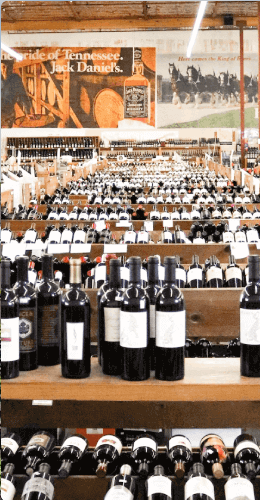Prosecco Versus Champagne: Know the Difference

When it comes to celebrating life's special moments, both large and small, few things symbolize elegance and joy like a glass of sparkling wine. Two of the most renowned types of sparkling wines are Prosecco and Champagne, both perfect for when you buy wine online. While they both share the effervescence that has made sparkling wine famous worldwide, they come from different regions, utilize distinct production methods, and offer unique flavor profiles. In this article, we delve into the key differences between Prosecco and Champagne, highlighting some top producers from each category.
Prosecco and Champagne hail from different corners of the world, and their geographical origins play a significant role in shaping their characteristics. Champagne is synonymous with the Champagne region in France, a historic area not far from Paris that has perfected the art of sparkling wine production over centuries. The region's cool climate, chalky soils, and strict regulations contribute to the unique qualities of Champagne.
On the other hand, Prosecco originates from the Veneto region in Italy, nestled between the Adriatic Sea and the picturesque hills. This area's milder climate and different soil compositions impact the grape cultivation and, consequently, the resulting wine's flavor profile.
Grapes and Winemaking
One of the most substantial differences between Prosecco and Champagne lies in the types of grapes used and the production methods employed. Champagne typically uses a blend of Chardonnay, Pinot Noir, and Pinot Meunier grapes. The labor-intensive méthode traditionnelle, also known as the Champagne method or méthode champenoise, involves a secondary fermentation in the bottle, giving rise to those characteristic fine bubbles.
Prosecco, on the other hand, primarily employs the Glera grape, although regulations also allow a few other local varieties. Most wine undergoes a different fermentation process known as the Charmat method or tank method. In this technique, the second fermentation occurs in large, pressurized tanks rather than individual bottles. This approach is responsible for Prosecco's distinctively lighter and fruitier profile, as well as its larger, less persistent bubbles. Did you know that there are a few Proseccos made using the traditional method? It’s mostly a secret, and they are hard to find!
Flavors and Aromas
The differences in production methods and grape varieties translate to noticeable distinctions in flavor profiles between Prosecco and Champagne. Champagne offers a complex range of flavors and aromas, often exhibiting notes of citrus, green apple, brioche, and even toasty undertones. The aging process on the lees (yeast sediment) during méthode traditionnelle fermentation contributes to its rich and developed taste.
Prosecco, with its Charmat method production, showcases vibrant fruitiness. Expect flavors like green apple, pear, white peach, and floral notes. Prosecco is generally lighter, crisper, and less yeasty in taste (the brioche, for example) compared to its French counterpart, making it an excellent choice for casual gatherings and warm-weather occasions. Fortunately, the best wine store California has a wide selection of both wines.
Top Producers
Regarding Champagne, a multitude of esteemed houses and grower-producers have made their mark on the world stage. Some of the top Champagne and Prosecco producers from the online wine store include:
Dom Pérignon: This iconic Champagne house is known for producing high-quality cuvées. Their commitment to crafting exceptional Champagne has solidified their reputation as a symbol of luxury and refinement.
Veuve Clicquot: Renowned for its history and innovation, Veuve Clicquot offers a range of Champagnes known for their balance and vibrancy. The signature "Yellow Label" is a popular choice.
Krug: With a focus on producing prestigious and expressive Champagnes, Krug is synonymous with craftsmanship. Their unique and complex blends set them apart in the Champagne world.
In the realm of Prosecco, several producers have gained international recognition for their dedication to quality:
Mionetto: With a history dating back to the late 19th century, Mionetto is a key player in the Prosecco industry. Their commitment to tradition and innovation is evident in their range of sparkling wines.
Valdo: Valdo has become synonymous with Prosecco excellence. They produce a variety of expressions, from the youthful and fresh to more complex and mature offerings. Another top Prosecco producer is "La Marca." La Marca has gained popularity for its high-quality Prosecco wines that capture the essence of the Veneto region's terroir and showcase the vibrant and refreshing characteristics of the Glera grape. La Marca offers a range of Prosecco expressions, from their classic Prosecco to more specialized offerings, catering to a diverse array of preferences and occasions. With a commitment to craftsmanship and tradition, La Marca has established itself as a reputable and sought-after producer in the world of Prosecco.
Overall, while Prosecco and Champagne both offer delightful effervescence, their distinct origins, grape varieties, production methods, and flavor and aroma profiles set them apart. This is important to know before you buy wine online. Champagne, with its refined and complex character, is often associated with celebrations and special occasions. Prosecco, on the other hand, brings a light-hearted and fruit-forward vibe, making it perfect for casual gatherings. Understanding the differences between these two sparkling wines helps make more informed choices when selecting the ideal bottle to elevate your moments of joy and connection. Whether you're sipping Champagne's intricate notes of elegance or relishing Prosecco's lively fruitiness, each sip tells a unique story rooted in its origins and production methods.

















Leave a comment